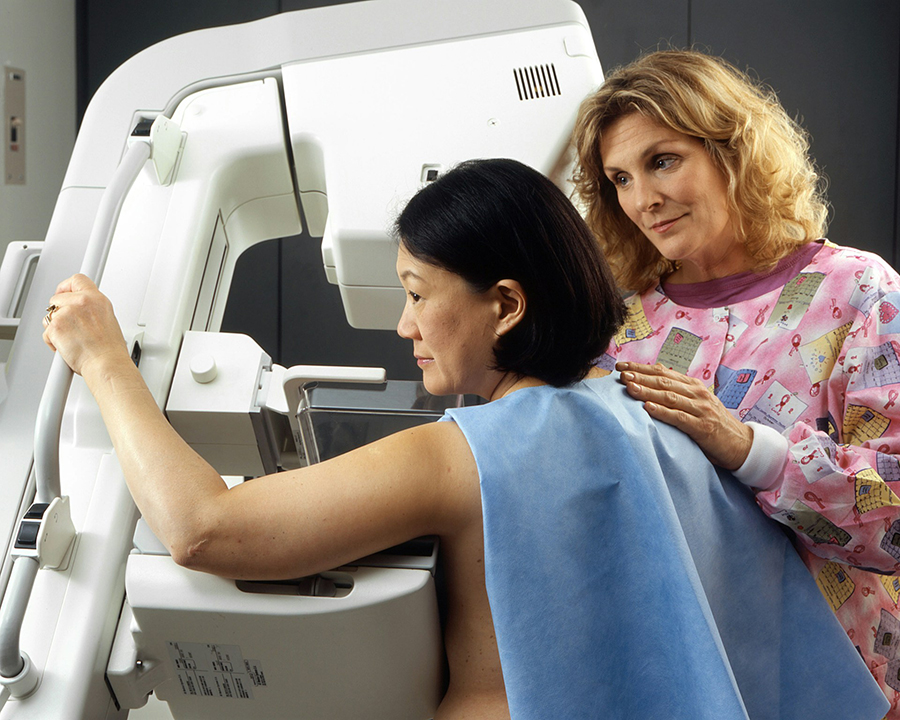President Biden’s executive order announced March 18 calls for coordinated federal action and an investment of $200 million to promote research into women’s health, a field that has been historically neglected.
“We still know too little about how to effectively prevent, diagnose and treat a wide array of health conditions in women,” Dr. Carolyn Mazure, chair of the White House Initiative on Women’s Health Research, told reporters after the release of the order.
The executive order calls for more than 20 actions by various government agencies, such as efforts to include more women in clinical trials. The biggest investment planned in the executive order is $200 million for the National Institutes of Health (NIH) in fiscal year 2025.
White House Initiative on Women’s Health Research with Jennifer Klein, Assistant to the President and Director of the Gender Policy Council, and Dr. Carolyn Mazure, Chair of the White House Initiative on Women’s Health Research
This funding “will allow NIH to catalyze interdisciplinary research, particularly on issues that cut across the traditional mandates of the institutes and centers at NIH. It will also allow NIH to launch ambitious, multi-faceted research projects such as research on the impact of perimenopause and menopause on heart health, brain health and bone health,” the White House said. The President’s 2025 budget request also calls for doubling funding for the NIH Office of Research on Women’s Health.
The need for greater NIH support for women’s health research had been pointed out by Sheila Mikhail, co-chair of the Women’s Health Initiative Task Force at the Biotechnology Innovation Organization (BIO), just a few days before.
“Despite NIH investments in women’s health research, there remain major knowledge gaps in our scientific understanding, and the impact on women is real. These gaps may be because NIH funding directed to women’s health research is not enough,” Mikhail told the National Academies Assessment of NIH Research on Women’s Health on March 7. “For us to improve the health of women in the United States and across the world, it is critical that NIH supports research.”
Areas of focus
One area where the executive order calls for a special focus is “to narrow research gaps on diseases and conditions associated with women’s midlife health or that are more likely to occur after menopause, such as rheumatoid arthritis, heart attack, and osteoporosis,” the White House said.
The loss of estrogen that occurs after menopause leaves women more vulnerable to a range of conditions, according to the U.S. Health and Human Services Office of Women’s Health.
There are many other specific concerns for women’s health. As the White House’s Dr. Mazure noted, heart disease and other conditions have different symptoms for women; some conditions, like Alzheimer’s, are more common among women; and endometriosis, uterine cancers, and uterine fibroids are unique to women.
Regarding women’s differing symptoms, the executive order calls for the NIH to launch a new initiative focusing on research in unique biomarkers for women.
The order also calls for the Office of Management and Budget and the Gender Policy Council (GPC) to find further gaps in federal funding for women’s health research and identify changes needed on the federal level to help close these gaps.
Actions being taken
Individual agencies making specific efforts to promote women’s health under the executive order include the Food and Drug Administration (FDA), which will seek “to advance efforts to help address gaps in research and availability of products for diseases and conditions that primarily impact women, or for which scientific considerations may be different for women,” the White House said.
FDA is also designing guidance for industry to ensure inclusion of women in clinical trials and planning outreach regarding the opportunities available in doing work to advance women’s health.
Other agencies and offices have existing funding that is already focused toward women’s health. For example, the Advanced Research Projects Agency for Health (ARPA-H) Sprint for Women’s Health, launched last month, committed $100 million towards transformative research and development. And the National Science Foundation (NSF) will be calling for proposals on research in this area.
Among other actions planned, the NIH and other agencies will be involved in building up the repository of available data on women’s health.
More can be done
Biden called for further federal support for research, noting that, in his State of the Union Address in early March, he urged Congress to appropriate $12 billion to create a Fund for Women’s Health Research at NIH.
“It is paramount to ensure that foundational research incorporates considerations of the effects of sex and gender on health and disease, and that publicly funded research explores the diseases affecting women,” BIO task force leader Mikhail said. “When a woman gets sick, the impact is felt beyond her to include her family, her community, and her workplace. This research is not only essential for the health of women, but also for the health of the economy.”




